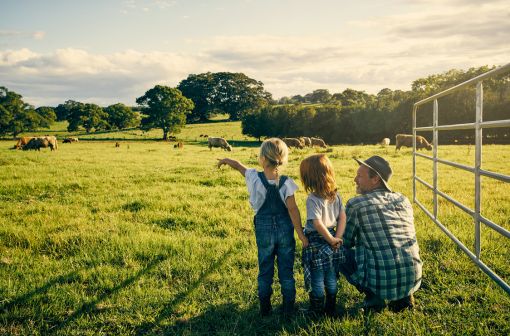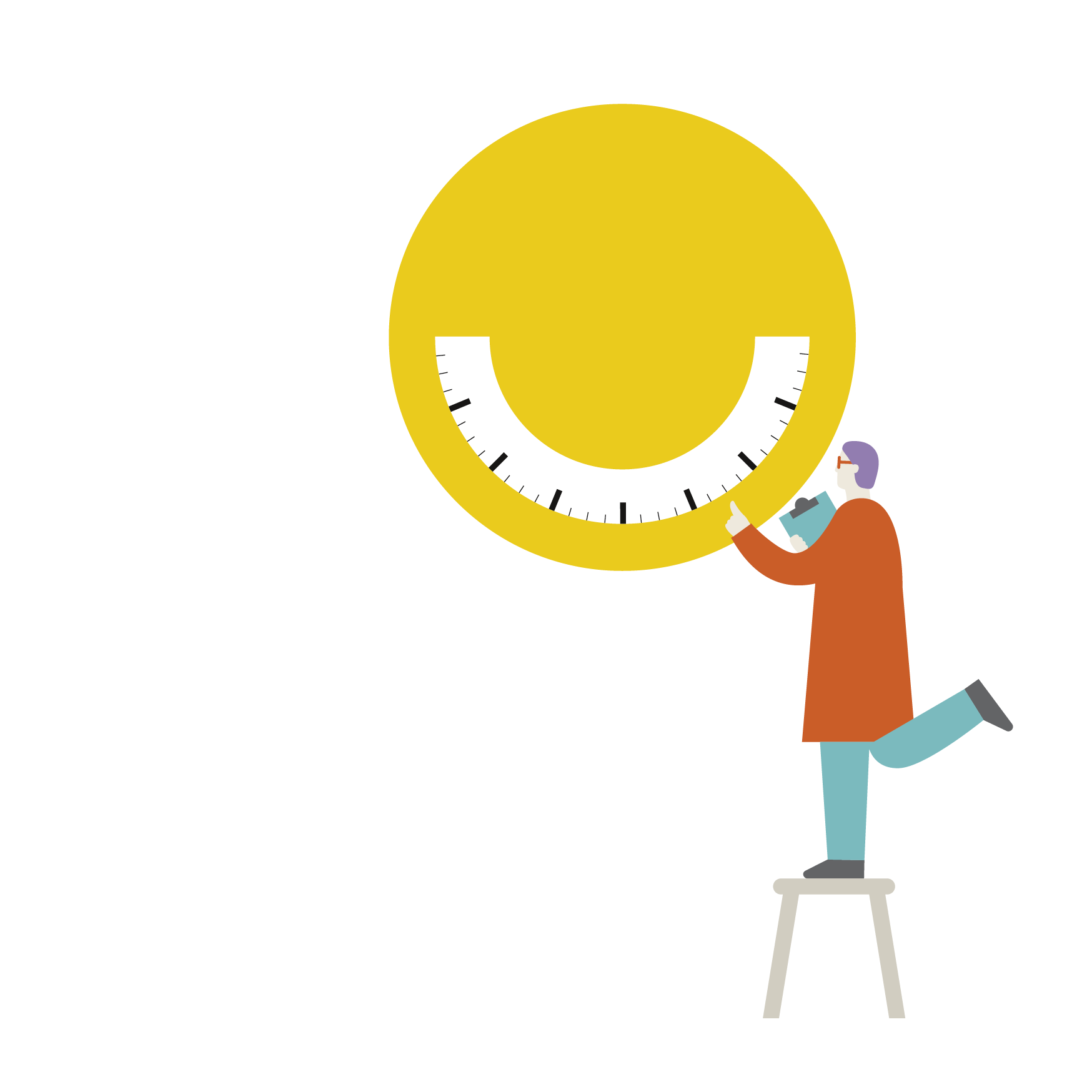“It tapped into that nice part of the Australian psyche. We help each other out. We volunteer to fight fires. We volunteer at surf lifesaving clubs.”—Professor David Lowe, Deakin University.
Key points
- The Australian Unity Wellbeing Index has found Australians’ personal and national wellbeing has remained relatively stable over the past 20 years.
- Terrorism and natural disasters such as the September 11 attacks and Black Saturday bushfires influence our sense of wellbeing.
- During the COVID-19 pandemic, our personal and national wellbeing scores remained stable when compared to non-pandemic years. However, those who lost their jobs or had other sources of stress as a result of the pandemic reported lower-than-normal wellbeing scores.
The past 20 years have gone by in a flash, and during that time, in collaboration with Deakin University, we’ve been monitoring the wellbeing of Australian adults in one of the longest-running nationally representative surveys of wellbeing, the Australian Unity Wellbeing Index.
From terrorism and natural disasters to political turmoil and a pandemic that changed the world, these events have influenced how we feel, personally and as a nation.

A new era: terrorism arrives on our doorstep
After the success of the 2000 Sydney Olympics, Australians had every reason to feel buoyant.
Professor David Lowe, Chair in Contemporary History at Deakin University, says: “If we start with the rather optimistic year of 2000 and the Sydney Olympics, Australia was very much enjoying its place on the world stage.”
David says Australians felt a sense of pride about the Olympics, particularly in terms of the role volunteers played in that event. “It tapped into that nice part of the Australian psyche. We helped each other out. We volunteered to fight fires. We volunteered at surf lifesaving clubs,” he says.
However, less than 12 months on from the Olympics, we were astounded by the September 11 terrorist attacks in the United States, which killed nearly 3,000 people and injured thousands more. The following year in 2002, 88 Australians were killed in another terrorist event that became known as the Bali bombings.
The Australian Unity Wellbeing Index has shown that our levels of concern about a terrorist attacks have fluctuated over the last 20 years. In 2009, 38.4 percent of those surveyed believed a terrorist attack was likely in the near future; in comparison, 74.9 percent were anticipating an attack in 2016, perhaps as a result of the events of the preceding years—the Lindt Cafe siege (2014), Charlie Hebdo attack (2015) and the Paris terror attacks (also 2015).
The Australian Unity Wellbeing Index also shows that the wellbeing of those who strongly believe a terrorist attack will occur in the near future falls below the normal range, while those who believe an attack is highly unlikely report above-average wellbeing.
David agrees that these events, along with “a pretty strong and consistent expectation among many Australians of further terror attacks”, are likely to be related to an underlying concern about terrorism, which can create sense a fragility around our wellbeing.
Interestingly, despite the increasing expectation of a terrorist attack, Australians’ satisfaction with national security has increased by three points in the last decade compared to the previous one.
A growing threat: climate change, drought and bushfires
The last 20 years have brought another threat into focus—our changing climate and its devastating impact on the environment.
The Black Saturday bushfires in 2009 killed 173 people in Victoria and injured hundreds more. More than 2,000 houses were destroyed and up to one million wild and domesticated animals died.
The recent drought and bushfire crisis brought more devastation. In the Black Summer of 2019–20, more than 11 million Australians were affected by the smoke from fires that burned across 12.6 million hectares of land. Thirty-three people lost their lives and more than one billion animals were killed.
While it would seem reasonable to expect people’s wellbeing to suffer following a natural disaster such as the bushfires, the Australian Unity Wellbeing Index has revealed the opposite is true for all but those most seriously affected by the disaster. The community and government support that follows a natural disaster can help maintain people’s wellbeing, as can an increased sense of community and cooperation.
Of course, those directly impacted often suffer tremendously. Satisfaction with health, achieving in life and future security—three of the seven domains we use to assess people’s satisfaction with their personal wellbeing—fell below the average range two years on from the 2009 Victorian bushfires among those who experienced damage to their home.
It’s also clear that ongoing issues, such as drought and climate change, can have a deeper impact. Drought-affected communities can rapidly fragment due to people moving away to find work, cuts to community services and other ripple effects caused by financial hardship.
Government, institutions, inequality (and the “Trump factor”)
While the timeline of the past 20 years captures some pivotal moments, David believes there have been “processes” unfolding across several years that hold enormous potential to impact on our future wellbeing. He describes these processes as affecting “confidence in institutions and issues of inequality”.
David points to the aged care crisis, climate change inaction, and the ability of social media to allow “divisions within society to be mobilised and exploited more easily” as key examples.
“One of the most unnerving things to watch play out was the ‘Trump factor’,” he says. “It showed us the potential for all those norms that we attach to democracy and the institutions supporting democracy to be capable of being swept away.”
In Australia, the Australian Unity Wellbeing Index shows that satisfaction with our government has declined significantly over the last decade, with instability and frequent changes in leadership thought to be key contributors to this decrease.
That said, we’ve seen a notable increase in satisfaction with government over the past year, which appears to be triggered by its handling of the COVID-19 pandemic.

An “unprecedented” end to the 20 years
Rounding out the 20-year period is, of course, the COVID-19 pandemic. Despite the word “unprecedented” often being used to describe this event, our research found both personal and national wellbeing scores were similar, stable and largely within the average range when compared to non-pandemic years.
As the lead researcher of the Australian Unity Wellbeing Index, Associate Professor Delyse Hutchinson, Deakin University, says, “the findings speak to the resilience of the Australian community in the face of major stress and our adaptive capability as a society”.
While our overall wellbeing remained stable, the COVID-19 pandemic did have an impact on Australians’ satisfaction with some domains. Lower levels of achieving in life were balanced out by higher scores in standard of living (finances) and personal safety—which resulted in stable overall wellbeing scores during the pandemic in 2020.
The research also found that some groups experienced lower wellbeing as a result of COVID-19. Those who lost their jobs or suffered income loss—such as hospitality, travel and entertainment workers affected by lockdowns—reported lower wellbeing, as did low-income households. The wellbeing scores for households experiencing the stress of income loss whilst raising dependent children and the added burden of home schooling were also particularly low.
There was, however, a positive side to the pandemic for many people. Delyse says: “When we asked participants about their experiences during COVID-19 in Australia, it was evident that, while many people had been negatively affected, positive experiences were also common.”
The positives were plentiful, and spoke of a deeper, richer life and re-imagined future. “Many people spoke about how the difficulties they experienced in 2020 had led them to reflect on what is most important to them in life and what they intend to focus on more in the future,” says Delyse. Others reported positive experiences around achieving greater work-life balance and quality time with family, as well as feeling increased gratitude and empathy for others.
Despite ups and downs, changes and challenges, Australians have managed to get through the past 20 years with their wellbeing intact. And as we continue to research and track the wellbeing of Australians into the future, we hope to continue to report on our stability and resilience as a nation—and find ways to make life even better.



.jpg)




